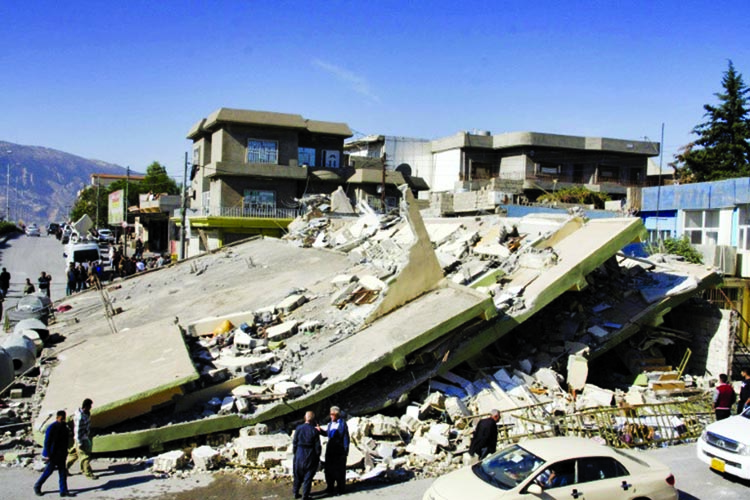
Iranians living outdoors in bitterly cold temperatures after an earthquake are making desperate pleas for help.
About 540 people were killed and close to 8,000 injured when the quake hit near the Iran-Iraq border on Sunday.
The government is scrambling to get aid to the worst-hit Kermanshah province, where hundreds of homes were destroyed.
President Hassan Rouhani, visiting the region, said state-built houses suffered more damage, and those responsible would be held accountable.
Night-time temperatures in Kermanshah province fell close to freezing for the second night in succession.
Ali Gulani, 42, lives in the province’s badly-hit town of Qasr-e-Shirin, and told BBC Persian people were burning crates to try to stay warm.
“We are living in a tent and we don’t have enough food or water,” he said. “You can hear children crying, it’s too cold. They are holding on to their parents to warm themselves – it’s pretty bad.” Mr Gulani said there were an average of three strong aftershocks an hour, provoking panic. Close to 200 aftershocks have hit the region since the magnitude-7.3 earthquake on Sunday night. It was one of the strongest on earth this year, as well as the deadliest.
Mr Gulani said he understood aid had been despatched within the province, but that people in his town had not yet received help. Instead, people were having to trek to the other side of town to get water from a tank. Media captionThe moment Iran-Iraq quake hit the Darbandikhan Dam control room
Iranian state TV said thousands of survivors had spent another night in makeshift camps or in the open.
“It is a very cold night… we need help. We need everything. The authorities should speed up their help,” one homeless young woman in Sarpol-e-Zahab, where most of the victims died, told Reuters news agency.
One aid agency said 70,000 people needed shelter and the UN said it was “ready to assist if required”. While visiting the region on Tuesday, a national day of mourning, President Hassan Rouhani pointed out that many privately-built homes appeared to have been spared damage.

